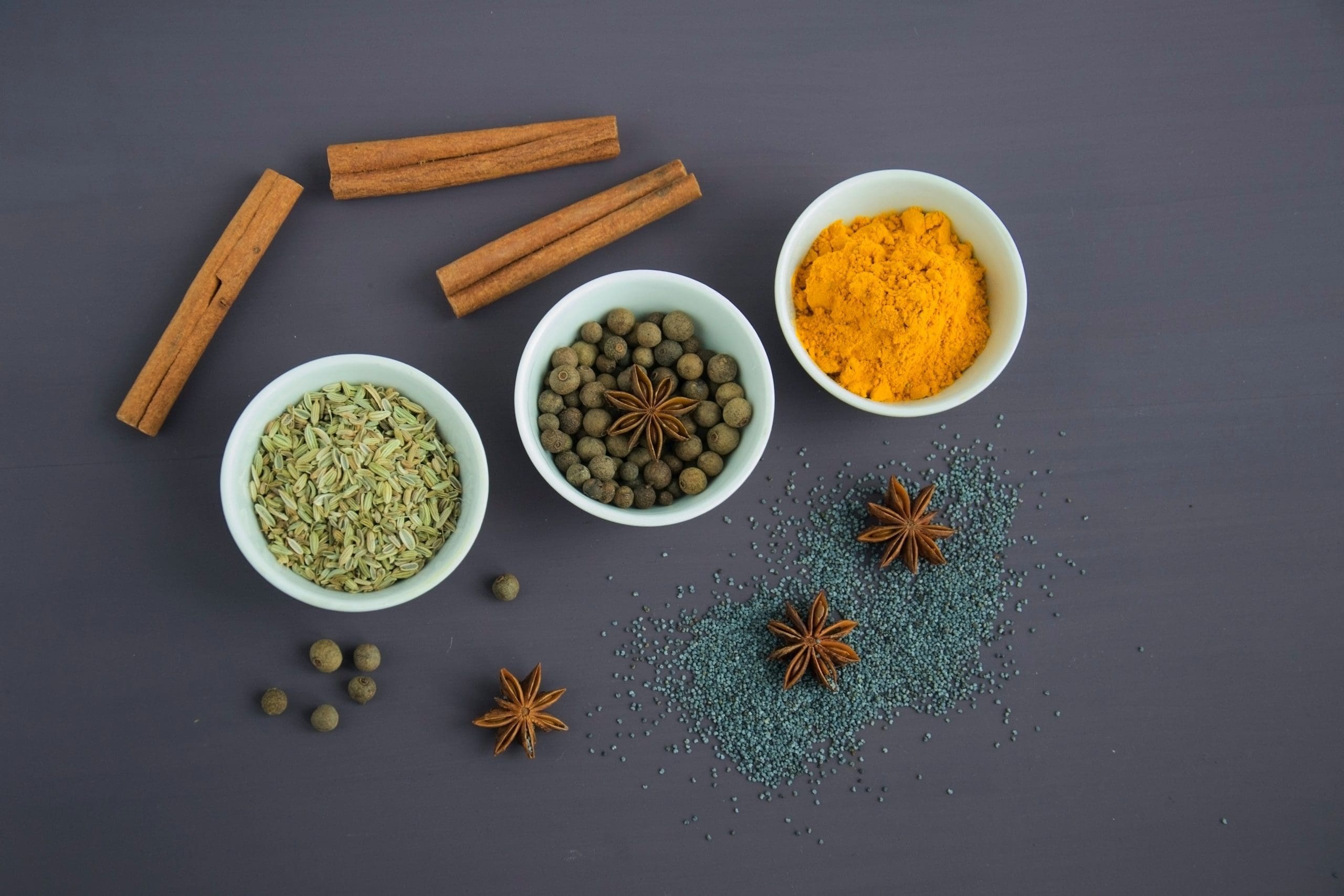You can improve your health simply by spicing up your cooking. Here are some fast facts on 10 common spices that promote health.
Basil
• Contains flavonoids that may protect against radiation-
induced cellular damage
• May have anti-inflammatory effects
• Contains beta-carotene, which is an antioxidant
• Is a good source of magnesium, iron, calcium, potassium, and vitamin C
Cinnamon
• Reduces blood glucose level in patients with type 2 diabetes
• Reduces triglyceride, low-density lipoprotein, and total cholesterol levels
• Aids digestion and relieves gas
• Has anticlotting, anti-inflammatory, and antioxidant properties
• Inhibits the growth of bacteria, fungi, and yeast
Cumin
• Is a good source of iron
• Stimulates pancreatic enzyme secretion, aiding digestion
Garlic
• Reduces total cholesterol, low-density lipoprotein, and triglyceride levels (in supplement form)
• Strengthens the immune
system
• May prevent certain types of cancer, such as cancers of the stomach and colonGinger
• Contains gingerol, which may relax blood vessels and stimulate blood flow
• Decreases nausea caused by pregnancy
• May decrease nausea caused by surgery, motion, or chemotherapy
• May reduce pain from arthritis
• Aids digestion
• Has an anti-inflammatory effect that may help prevent cancer and heart disease
Oregano
• Contains thymol and carvacrol, which have antibacterial properties
• Provides high-level antioxidant activity (more than 42 times more antioxidant activity than apples)
Pepper, hot (such as cayenne)
Has capsaicin, which contains folic acid, potassium, and vitamins A, C, and E, and which may:
• Lower triglyceride level
• Improve digestion
• Trigger the release of endorphins
• Reduce high blood pressure
• Increase metabolism
• Reduce pain and swelling from arthritis
• Clear congestion from lungs and nose
Rosemary
• May inhibit breast and colon cancer • Contains carnosol, an anti-oxidant with anticancer
actionsSage
• Contains flavonoids and phenolic acids, which prevent oxygen-based damage to cells
• Has anti-inflammatory and antioxidant properties
Turmeric (used in curries)
• Contains curcumin, which is believed to be the active ingredient
• Increases energy level
• Improves digestion
• May protect against some cancers, such as skin, liver, colon, and oral cancers
• Lowers cholesterol levels
• May protect against damage from free radicals, which has been linked to Alzheimer disease
• Reduces joint swelling caused by rheumatoid arthritis (studies done in rats)
Before you spice things up
When adding spices for health benefits, keep these points in mind:
• Consider combination effects. For example, ginger and garlic both have anticoagulant effects, which may be a problem for a person taking an anticoagulant.
• The beneficial effects of many spices have been confirmed only in rodent studies. More research in humans is needed.
• The benefits of some spices are only achieved with amounts beyond normal daily consumption by humans.
• Antioxidants may help prevent cancer, heart disease, and Alzheimer disease.
• A balanced diet is the best protection against disease.
Selected references
National Center for Complementary and Alternative Medicine, National Institutes of Health (http://nccam.nih.gov/)
Nutrition.gov (www.nutrition.gov)
Simonds N. Spices of Life: Simple and Delicious Recipes for Great Health. New York, NY: Knopf; 2005.
Tapsell LC, et al. Health benefits for herbs and spices: the past, the present, the future. Med J Aust. 2006;185(4):S1-S24. Available at: www.mja.com.au/public/issues/185_04_210806/supplement_210806.html.
The World’s Healthiest Foods (www.whfoods.com/foodstoc.php)
For a complete list of selected references, see March 2007 references.
Cynthia Saver, MS, RN, is president of CLS Development in Columbia, Maryland.


















